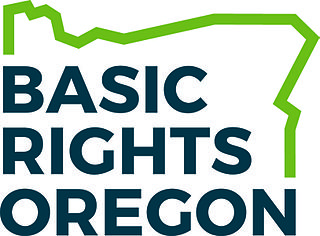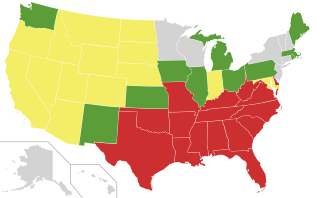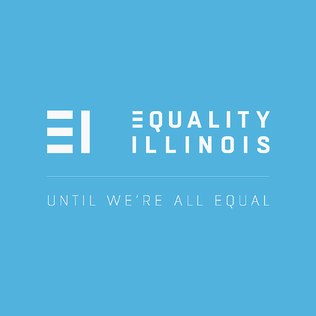Civil liberties are guarantees and freedoms that governments commit not to abridge, either by constitution, legislation, or judicial interpretation, without due process. Though the scope of the term differs between countries, civil liberties may include the freedom of conscience, freedom of press, freedom of religion, freedom of expression, freedom of assembly, the right to security and liberty, freedom of speech, the right to privacy, the right to equal treatment under the law and due process, the right to a fair trial, and the right to life. Other civil liberties include the right to own property, the right to defend oneself, and the right to bodily integrity. Within the distinctions between civil liberties and other types of liberty, distinctions exist between positive liberty/positive rights and negative liberty/negative rights.

The Equal Rights Amendment (ERA) is a proposed amendment to the United States Constitution designed to guarantee equal legal rights for all American citizens regardless of sex. Proponents assert it would end legal distinctions between men and women in matters of divorce, property, employment, and other matters. The first version of an ERA was written by Alice Paul and Crystal Eastman and introduced in Congress in December 1923.
Separate but equal was a legal doctrine in United States constitutional law, according to which racial segregation did not necessarily violate the Fourteenth Amendment to the United States Constitution, which nominally guaranteed "equal protection" under the law to all people. Under the doctrine, as long as the facilities provided to each "race" were equal, state and local governments could require that services, facilities, public accommodations, housing, medical care, education, employment, and transportation be segregated by "race", which was already the case throughout the states of the former Confederacy. The phrase was derived from a Louisiana law of 1890, although the law actually used the phrase "equal but separate".
Loving v. Virginia, 388 U.S. 1 (1967), was a landmark civil rights decision of the U.S. Supreme Court in which the Court ruled that laws banning interracial marriage violate the Equal Protection and Due Process Clauses of the Fourteenth Amendment to the U.S. Constitution. The case involved Mildred Loving, a woman of color, and her white husband Richard Loving, who in 1958 were sentenced to a year in prison for marrying each other. Their marriage violated Virginia's Racial Integrity Act of 1924, which criminalized marriage between people classified as "white" and people classified as "colored". The Lovings appealed their conviction to the Supreme Court of Virginia, which upheld it. They then appealed to the U.S. Supreme Court, which agreed to hear their case.

Basic Rights Oregon is an American nonprofit LGBT rights organization based in Portland, Oregon. It is the largest advocacy, education, and political organization working in Oregon to end discrimination based on sexual orientation and gender identity. Basic Rights Oregon has a full-time staff, a contract lobbyist, and more than 10,000 contributors, and 5,000 volunteers. It is a 501(c)(4) organization that maintains a 501(c)(3) education fund, a state candidate PAC and a ballot measure PAC. The organization is a member of the Equality Federation.

Equality before the law, also known as equality under the law, equality in the eyes of the law, legal equality, or legal egalitarianism, is the principle that all people must be equally protected by the law. The principle requires a systematic rule of law that observes due process to provide equal justice, and requires equal protection ensuring that no individual nor group of individuals be privileged over others by the law. Sometimes called the principle of isonomy, it arises from various philosophical questions concerning equality, fairness and justice. Equality before the law is one of the basic principles of some definitions of liberalism. It is incompatible with legal slavery.
Same-sex marriage in Florida has been legal since January 6, 2015, as a result of a ruling in Brenner v. Scott from the U.S. District Court for the Northern District of Florida. The court ruled the state's same-sex marriage ban unconstitutional on August 21, 2014. The order was stayed temporarily. State attempts at extending the stay failed, with the U.S. Supreme Court denying further extension on December 19, 2014. In addition, a state court ruling in Pareto v. Ruvin allowed same-sex couples to obtain marriage licenses in Miami-Dade County on the afternoon of January 5, 2015. In another state case challenging the state's denial of marriage rights to same-sex couples, a Monroe County court in Huntsman v. Heavilin stayed enforcement of its decision pending appeal and the stay expired on January 6, 2015.

Equality California (EQCA) is a non-profit civil rights organization that advocates for the rights of LGBT people in California. It is the largest statewide LGBT organization in the United States and the largest member of the Equality Federation. The organization is based in Los Angeles.

Florida Amendment 2 is an amendment made to the Constitution of Florida in 2008. It added Article I, Section 27 to the constitution, which defines marriage as a union only between one man and one woman, and thus bans the creation of similar unions, such as civil unions or same-sex marriage.
Strauss v. Horton, 46 Cal. 4th 364, 93 Cal. Rptr. 3d 591, 207 P.3d 48 (2009), was a decision of the Supreme Court of California, the state's highest court. It resulted from lawsuits that challenged the voters' adoption of Proposition 8 on November 4, 2008, which amended the Constitution of California to outlaw same-sex marriage. Several gay couples and governmental entities filed the lawsuits in California state trial courts. The Supreme Court of California agreed to hear appeals in three of the cases and consolidated them so they would be considered and decided. The supreme court heard oral argument in the cases in San Francisco on March 5, 2009. Justice Kathryn Mickle Werdegar stated that the cases will set precedent in California because "no previous case had presented the question of whether [a ballot] initiative could be used to take away fundamental rights".

In the United States, anti-miscegenation laws were passed by most states to prohibit interracial marriage, and in some cases also prohibit interracial sexual relations. Some such laws predate the establishment of the United States, some dating to the later 17th or early 18th century, a century or more after the complete racialization of slavery. Nine states never enacted such laws; 25 states had repealed their laws by 1967, when the United States Supreme Court ruled in Loving v. Virginia that such laws were unconstitutional in the remaining 16 states. The term miscegenation was first used in 1863, during the American Civil War, by journalists to discredit the abolitionist movement by stirring up debate over the prospect of interracial marriage after the abolition of slavery.

Equality Florida is a political advocacy group that advocates for civil rights and protections for lesbian, gay, bisexual, transgender, and queer (LGBTQ) residents of the U.S. state of Florida.

Equality Illinois (EI) was founded in 1991 to work towards building a better Illinois by advancing equal treatment and social justice through education, advocacy, and protection of the rights of the LGBT community.

Helena Dalli is a Maltese politician serving as European Commissioner for Equality since 1 December 2019. She is a member of the Labour Party.
Garden State Equality v. Dow, 82 A. 3d 336 is a New Jersey Superior Court case holding that New Jersey's marriage laws violated the rights of same-sex couples to equal protection of the law under the New Jersey State Constitution. The ruling was issued on September 27, 2013. The Superior Court and the Superior Court, Appellate Division refused the State's request for a stay of the trial court's order, and the New Jersey Supreme Court refused to do so on a 7-0 vote. The ruling took effect on October 21, 2013. On the same day, New Jersey Governor Chris Christie dropped the State's plans to appeal, ending the denial of marriage rights to same-sex couples in New Jersey.
SAVE is a grassroots nonprofit political advocacy organization located in Miami, Florida. Founded in 1993, the organization's stated mission is to "promote, protect and defend equality for people in South Florida who are lesbian, gay, bisexual and transgender."
Anne Stanback is an American activist for LGBT rights and same-sex marriage.

Miami has one of the largest and most prominent LGBTQ communities in the United States. Miami has had a gay nightlife scene as early as the 1930s. Miami has a current status as a gay mecca that attracts more than 1 million LGBT visitors a year. The Miami area as a whole has been gay-friendly for decades and is one of the few places where the LGBTQ community has its own chamber of commerce, the Miami-Dade Gay and Lesbian Chamber of Commerce (MDGLCC). As of 2005, Miami was home to an estimated 15,277 self-identifying gay and bisexual individuals. The Miami metropolitan area had an estimated 183,346 self-identifying LGBT residents.

2020 Florida Amendment 4, commonly known as the Think Twice Initiative was a proposed amendment to the Constitution of Florida that failed by 52.47% to 47.53% in the 2020 election on November 3, 2020. The amendment would have required new constitutional amendments to be approved by voters twice in order to go into effect.










